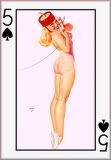Venezuelan vote boycott: Washington paves road to intervention
With predictable brazenness, the US State Department on Monday questioned, on grounds of a low turnout, the legitimacy of Sunday’s legislative elections in Venezuela.
By Bill Van Auken
7 December 2005
.............In 1984, the US Embassy in Nicaragua engineered an election boycott by its chosen presidential candidate Arturo Cruz, then on the CIA payroll to the tune of $6,000 a month. It sought to bribe and threaten the other opposition parties to join the boycott in a bid to discredit the Sandinista government, which was set to win with overwhelming popular support no matter what other parties participated.
Despite the findings of election observers that the voting had been free and fair, Washington seized upon the boycott that it had organized to brand the Sandinista government an undemocratic dictatorship and justify the CIA’s “contra” war against Nicaragua.
Similarly, in Haiti, the US-backed opposition boycotted a 2000 election under conditions in which it was politically discredited and the Lavalas party of Jean-Bertrand Aristide was headed for a resounding victory at the polls. Again, despite a clean bill of health from election observers, the opposition continued to claim that the vote was rigged, right up until the moment in 2004 that US Marines invaded the country and ousted Aristide, Haiti’s elected president.
There can be little doubt that the latest maneuver in Venezuela has been carried out as part of a similar strategy of counterrevolution and military intervention.
By Bill Van Auken
7 December 2005
.............In 1984, the US Embassy in Nicaragua engineered an election boycott by its chosen presidential candidate Arturo Cruz, then on the CIA payroll to the tune of $6,000 a month. It sought to bribe and threaten the other opposition parties to join the boycott in a bid to discredit the Sandinista government, which was set to win with overwhelming popular support no matter what other parties participated.
Despite the findings of election observers that the voting had been free and fair, Washington seized upon the boycott that it had organized to brand the Sandinista government an undemocratic dictatorship and justify the CIA’s “contra” war against Nicaragua.
Similarly, in Haiti, the US-backed opposition boycotted a 2000 election under conditions in which it was politically discredited and the Lavalas party of Jean-Bertrand Aristide was headed for a resounding victory at the polls. Again, despite a clean bill of health from election observers, the opposition continued to claim that the vote was rigged, right up until the moment in 2004 that US Marines invaded the country and ousted Aristide, Haiti’s elected president.
There can be little doubt that the latest maneuver in Venezuela has been carried out as part of a similar strategy of counterrevolution and military intervention.



